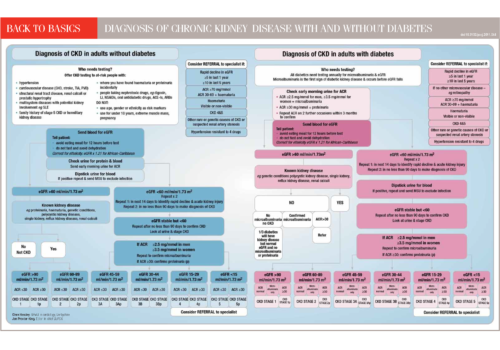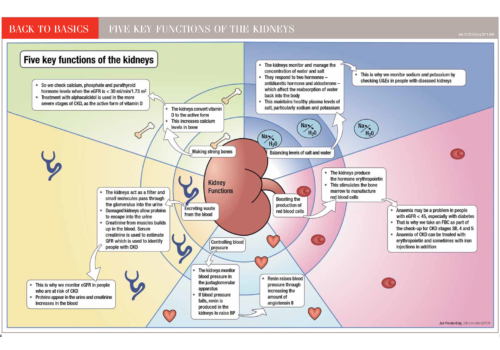Half of post-menopausal women will suffer a fracture during their lifetime, mainly because of osteoporosis. Currently available medication can halve the risk of future osteoporotic fractures. Yet many at-risk women are still unidentified, and only half of all patients persist with treatment for more than a year.
Challenging the rule of halves in osteoporosis
Age no barrier: Contraception in the perimenopause
Although there is a natural fall in fertility with age, women still need reliable contraception to avoid unintended pregnancies during the perimenopause. No contraceptive method is contraindicated by age alone, but women must be individually assessed, based on the risks and benefits of each method.
Understanding end-of-life care in advanced Kidney Disease
People with advanced kidney disease are required to make many choices about their treatment throughout the journey of this disease. Opting not to have dialysis or to withdraw from treatment is a difficult decision and there are many factors that influence patients’ decisions. For those who choose not to have dialysis, the implications need to be understood by the patient, their family and carers and healthcare professionals involved in their care. This article provides an update on this important issue to equip primary care professionals with a clear understanding of end-of-life care for patients with advanced kidney disease.
Anaemia of chronic kidney disease
Chronic kidney disease (CKD) is a multifaceted disease that has several associated complications. Anaemia is one of the most common complications that can develop early in the course of the disease process. It is associated with increased mortality,increased hospitalisation rates, and reduced quality of life. Lower levels of kidney function are associated with lower haemoglobin (Hb) levels and a higher prevalence and severity of anaemia.
Early chronic kidney disease (CKD stage 3a): How to tell people they have the condition
Over the past five years there have been dramatic changes to the way in which people with chronic kidney disease (CKD) are being managed in primary care. As a result of policy changes there are now many more people with CKD being identified, especially those with stage 3A. This article deals with one of the most important issues for healthcare professionals when caring for people with early CKD – how to tell people that they have the condition and how to best manage it.
Improving the care of patients with chronic kidney disease
Chronic kidney disease (CKD) has a high mortality rate once it reaches the most severe stage. However, complications can be reduced and even prevented if it is diagnosed and treated earlier. Many people who develop CKD become symptomatic only when the disease is well established. By that point, the opportunity for some of the interventions aimed at minimising the impact of the disease has passed. Nurses working in general practice are well placed to recognise people at risk for CKD, diagnose them early and ensure that treatment is initiated and optimised to protect their renal and cardiovascular health.
Back to Basics: Diagnosis of CKD with and without diabetes
Back to Basics: The five key functions of the kidneys
Eating well for your kidneys
Diet and lifestyle strategies are essential in the treatment and possibly in the prevention of chronic kidney disease (CKD). Dietary modification plays a fundamental role in helping to control increased levels of blood electrolytes and metabolic waste productsthat are often seen as renal function declines. Dietary and lifestyle modification may not directly influence disease progression in CKD, but several lifestyle factors have been highlighted as important due to the significant influence they exert over associated factors such as diabetes and hypertension, which are two of the leading causes of CKD, and obesity.
Using drugs safely in chronic kidney disease
Chronic kidney disease (CKD) affects renal drug elimination and other important processes involved in drug disposition, including absorption, drug distribution and non-renal clearance. As a result, the reduced renal excretion of a drug or its metabolites can cause toxicity and the sensitivity to some drugs is increased even if elimination is unimpaired.
Chronic kidney disease and QOF: Ticking the right boxes for the right reasons
The Quality and Outcomes Framework (QOF) was implemented in 2004 with the aim of ensuring that all patients had access to standardised, evidence-based care for their long-term condition. Points are awarded for meeting certain standards in each of theseconditions and the number of points earned is translated into money that is paid to the practice. Chronic kidney disease (CKD) is one of the long-term conditions with QOF points for registering and monitoring.























